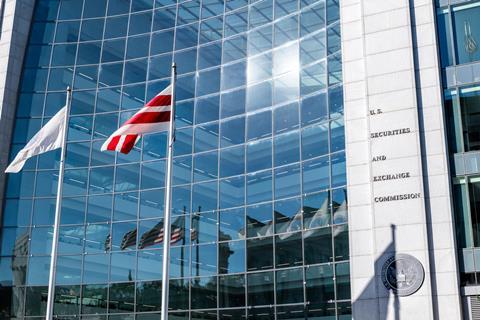The Securities and Exchange Commission (SEC) approved major new rules on climate disclosure yesterday, but experts say they won’t be enough to satisfy investor demand for sustainability information.
Commissioners voted 3:2 in support of the proposal, which will require US companies to provide information to their investors about the financial risks that climate change poses to their businesses.
Large companies will also have to disclose their Scope 1 and 2 emissions under the rules, but Scope 3 emissions – those generated by supply chains and the use of products and services – were removed from the final proposal.
The regulation is much weaker than its EU equivalent: under the Corporate Sustainability Reporting Directive (CSRD), firms must explain how their activities contribute to environmental and social harms, as well as how sustainability issues might threaten the viability of their business activities.
The SEC proposal, meanwhile, only tackles climate change, and does not put the same emphasis on the impact of business activities.

The regulator received some 16,000 comment letters in response to the original plans, published in 2022. Many argued that the requirements would be overly burdensome, and go beyond the SEC’s legal mandate to safeguard investors. The concessions made in the final proposal sought to resolve some of those issues.
Under the new rules – and in alignment with the widely-used Taskforce on Climate-related Financial Disclosures (TCFD) – companies will be required to explain how they address climate risk in their governance and strategy decisions.
Mirroring CSRD, the SEC’s rules are set to be phased in from next year, starting with requirements for large companies. Smaller companies will be exempt from having to disclose their greenhouse gas emissions, and will just have to focus on how climate might hurt their business.
Disclosures must be made through official filings to the SEC and, over time, will require assurance.
Sam VanderMeulen, a US-based senior policy analyst for the Principles for Responsible Investment, described yesterday’s vote as “a good first step”.
“The fact that this now exists is a huge positive,” he told IPE. “We’ve heard from investors for years that they want this information, but it’s really hard to access it when you have to go searching through the voluntary reports that companies are making.”
He added that he expected the regulation to evolve and strengthen over time, but for now, “some rule is better than no rule”.
Frédéric Ducoulombier, founding director of the Climate Impact Institute at EDHEC Business School in France, agreed that “this is better than no rule”, but said that “investors will need to continue to advocate for and demand more comprehensive disclosures than mandated by law”.
The SEC is expected to face legal challenges as it tries to finalise the rules. According to Reuters, 10 Republican-led states have already filed a lawsuit against the regulator, just hours after the vote took place yesterday.
On the other side of the debate, non-profit groups have suggested they will sue because the rules are not ambitious enough.
“Challenge is inevitable and should be expected early,” said Ducoulombier.
Read the digital edition of IPE’s latest magazine























